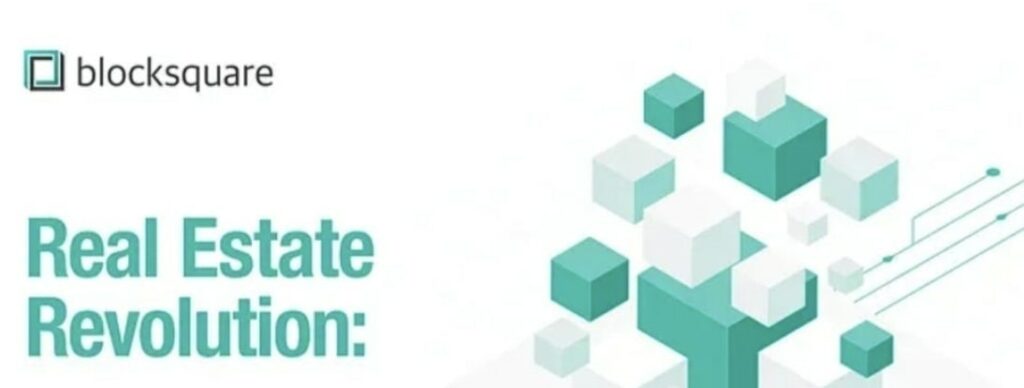Due to skyrocketing prices, the real estate market has become increasingly inhospitable to prospective homeowners worldwide. To put things into perspective, since the start of 2020, property prices in the United States alone have surged by 47.1%, with similar upswings witnessed across Asia and Europe as well. For instance, in Turkey, prices soared by nearly 168% between 2021 and 2023, while in Iceland and Estonia, prices have risen by 103% and 196%, respectively, since 2010.
Due to this obvious barrier to entry, a new wave of technological innovation — referred to as real-world asset (RWA) tokenization — seems to have swept the global economy, one that holds the promise to democratize access and transform how individuals invest in property. In brief, tokenization refers to the process of creating digital tokens that represent ownership of real-world assets (including real estate, commodities, or art) on the blockchain.
At the forefront of this revolution stands a company called Blocksquare, which offers SaaS solutions for blockchain-based real estate tokenization. Harnessing the combined benefits of smart contracts, decentralized autonomous organizations (DAOs), and tokenization, Blocksquare seeks to create a new real-estate investment avenue, one that doesn’t require significant capital or time-consuming paperwork (much like how it is in the traditional realm).
Furthermore, it bears mentioning that Blocksquare’s digital framework has been built using blockchain tech and is designed to be self-sufficient, community-led, and trustless — a model that would be impossible to craft without the advancements made by Web3 in recent years. At the heart of Blocksquare’s ecosystem stands Oceanpoint, a decentralized finance (DeFi) platform bridging the world of fiat, cryptocurrencies, and RWAs.
A new pathway to accessible real estate investments
From the outside looking in, Blocksquare’s model revamps the real-estate accrual process in several key ways. Properties are first converted into digital tokens and subsequently added on-chain. Each property is then represented by 100,000 BSPT (Blocksquare Property Tokens), which can then be fractionally owned by investors globally.
This process not only increases liquidity substantially but also opens up real estate investment to a much broader audience, allowing individuals to invest with much smaller capital pools than traditionally required.
Moreover, Oceanpoint v0.5 — the protocol’s latest iteration — introduces a module called ‘Marketplace Pools,’ which enables community members to support and fund real estate projects. Investors can stake Blocksquare’s native utility token (BST) to participate in key governance processes as well as earn rewards.
As highlighted earlier, smart contracts play a crucial role in automating many of the processes involved in real estate transactions (these can range from rent collection to profit distribution). This automation reduces administrative overhead, increases efficiency, and maximizes transparency.
Moreover, since the platform operates as a decentralized autonomous organization (DAO), token holders have a tangible say in the project’s internal decision-making processes, thus guiding its future course of action and growth.
Looking ahead
Despite the mind-boggling figures presented earlier, the vast majority of macroeconomic indicators suggest that global real estate prices are not going to go down anytime soon. In fact, according to a recent study by JLL Inc., the market is expected to reach a valuation of approximately $6.13 trillion by 2030.
Key drivers for this growth seem to be manifold, with experts citing the rapid economic expansion of developing countries, increased urbanization, and rising demand for residential/commercial properties as reasons for the same. To elaborate, a PwC report suggests that over the coming decade, the Asia Pacific region will dominate the property market, with countries like China and India playing major roles due to their large populations and favorable government policies
Therefore, as Blocksquare continues to innovate and expand its suite of offerings, the future of real estate investment stands to be increasingly decentralized, making it more accessible to the masses. The company has already tokenized over $100 million worth of real estate assets across 118 diverse properties in 21 countries, demonstrating the scalability and global potential of its model.
Lastly, the introduction of Oceanpoint v0.5, especially its Marketplace Pools feature, marks a significant step towards creating a truly decentralized and community-driven real estate investment ecosystem. By empowering both investors and marketplace operators, Blocksquare is paving the way for a new era of real estate finance. Interesting times ahead, to say the least!
Brian Wang is a Futurist Thought Leader and a popular Science blogger with 1 million readers per month. His blog Nextbigfuture.com is ranked #1 Science News Blog. It covers many disruptive technology and trends including Space, Robotics, Artificial Intelligence, Medicine, Anti-aging Biotechnology, and Nanotechnology.
Known for identifying cutting edge technologies, he is currently a Co-Founder of a startup and fundraiser for high potential early-stage companies. He is the Head of Research for Allocations for deep technology investments and an Angel Investor at Space Angels.
A frequent speaker at corporations, he has been a TEDx speaker, a Singularity University speaker and guest at numerous interviews for radio and podcasts. He is open to public speaking and advising engagements.
>>> Read full article>>>
Copyright for syndicated content belongs to the linked Source : Next Big Future – https://www.nextbigfuture.com/2024/07/real-estates-growing-confluence-with-the-power-of-smart-contracts-daos-and-tokenization.html
